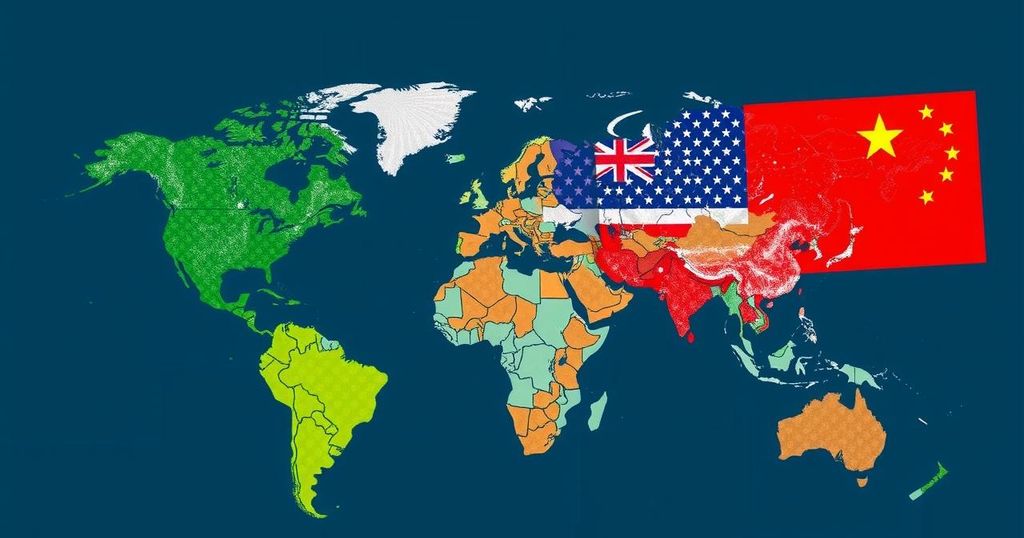Trump 2.0: Anticipated Disruptions in U.S. Foreign and Climate Policies

Former White House adviser Robert McNally predicts a disruptive Trump administration focused on Iran and China while regressing U.S. climate policies. He highlights the likelihood of employing maximum pressure on Iran and challenging China economically. McNally anticipates a retreat from progressive climate measures, leading to potential challenges in U.S. environmental commitments.
In the context of a potential Trump administration resurgence, former White House adviser Robert McNally has articulated a vision for American foreign policy that includes intensifying relations with Iran and China while re-evaluating domestic climate change initiatives. McNally suggests that President Trump will employ a strategy of ‘maximum pressure’ to deter conflicts with Iran, focusing instead on economic constraints rather than military confrontation. Furthermore, he anticipates an aggressive stance against China, which may involve reevaluating trade policies and diplomatic relations. Regarding climate measures, McNally points to a significant shift in prioritization, indicating a possible dismantling of the existing climate structure, suggesting a return to fossil fuel reliance and a reduction in environmental regulations. This perspective raises critical questions about the future trajectory of U.S. foreign relations and environmental policies under a potential Trump 2.0 administration.
The article discusses the implications of a possible re-election of Donald Trump, exploring former adviser Robert McNally’s predictions regarding U.S. policies on foreign relations, particularly with Iran and China, and environmental issues. The concept of ‘maximum pressure’ refers to economic sanctions and diplomatic efforts intended to curtail perceived threats from foreign nations without resorting to military intervention. The article implies significant transformations in both foreign and domestic policy environments that could emerge from a Trump-led administration.
In conclusion, Robert McNally’s insights reveal a potentially disruptive agenda associated with the re-emergence of Donald Trump, which emphasizes economic pressure on foreign adversaries and a marked departure from climate initiatives. This suggests a transformative period for U.S. diplomacy and environmental policy, raising significant implications for future global dynamics and domestic governance.
Original Source: www.upstreamonline.com








